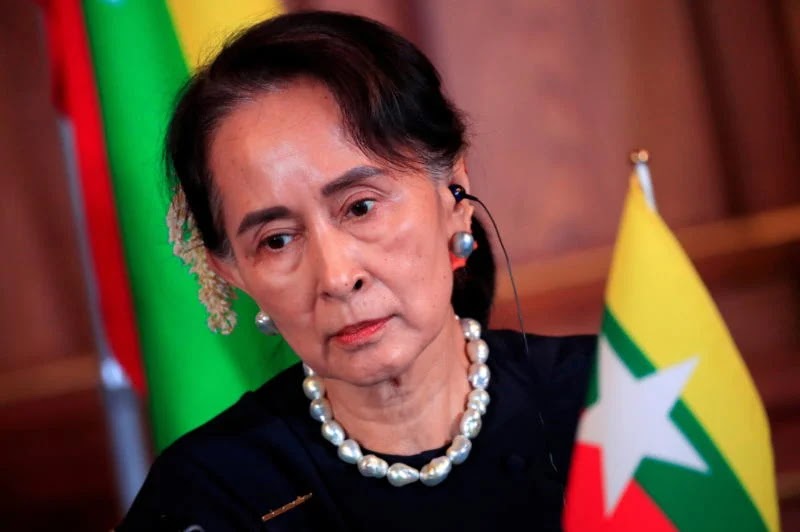According to a source with knowledge of the case, Myanmar's junta sentenced former leader Aung San Suu Kyi on Wednesday to an additional six years in prison for corruption, bringing her total term behind bars to 26 years.
Since the generals overthrew her administration in a coup on February 1 of last year, ending the country's brief spell of democracy, Suu Kyi, 77, has been imprisoned.
In the intervening years, she has been found guilty of a number of offences, including breaking the Official Secrets Act, election fraud, and unlawfully having walkie-talkies.
According to the source, the Nobel laureate was recently "sentenced to three years imprisonment each for two corruption cases" in which she was charged with accepting bribes from a businessman.
The terms will be served concurrently, the source added.
The businessman, Maung Weik, appeared in a video televised by a military broadcaster last year claiming he had given Suu Kyi $550,000 over several years.
Maung Weik — who was convicted of drug trafficking in 2008 — also said he had donated money to senior figures in Suu Kyi’s National League for Democracy government for the good of his business.
Suu Kyi — who denies all charges against her — appeared in good health and will appeal, the source added.
She is currently on trial for five other corruption charges. Each carries a maximum 15 years in prison.
A spokesperson for Amnesty International on Wednesday slammed the trial as a sham that “cannot be taken seriously”.
“Myanmar’s military is heaping trumped-up charge after trumped-up charge on Aung San Suu Kyi as part of a broader campaign to lock up and silence any and all opponents,” they said.
A junta spokesman did not respond to a request for comment.
Journalists have been barred from attending the court hearings and Suu Kyi’s lawyers have been banned from speaking to the media.
In June, she was transferred from house arrest to a prison in the capital Naypyidaw, where her trials are being held in a courthouse inside the prison compound.
Suu Kyi has been the face of Myanmar’s democratic hopes for more than 30 years and was previously a political prisoner.
Since February 2021, she has once again been confined by the military, with her only link to the outside world now brief pre-trial meetings with lawyers.
Many of her political allies have also been arrested since the coup, with one chief minister sentenced to 75 years in jail.
The Southeast Asian nation has been in turmoil since the military seized power, sparking widespread armed resistance.
The junta has responded with a crackdown that rights groups say includes razing villages, mass extrajudicial killings and airstrikes on civilians.
More than one million people have been displaced since the coup, according to the United Nations children’s agency.
More than 2,300 people have been killed and over 15,000 arrested since the military seized power, according to a local monitoring group.



